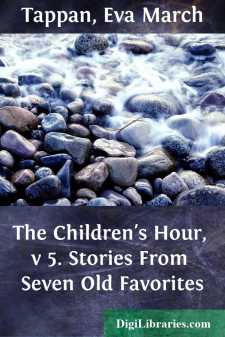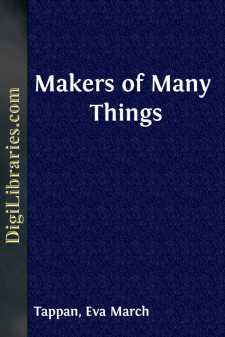Categories
- Antiques & Collectibles 13
- Architecture 36
- Art 48
- Bibles 22
- Biography & Autobiography 813
- Body, Mind & Spirit 142
- Business & Economics 28
- Children's Books 17
- Children's Fiction 14
- Computers 4
- Cooking 94
- Crafts & Hobbies 4
- Drama 346
- Education 46
- Family & Relationships 57
- Fiction 11829
- Games 19
- Gardening 17
- Health & Fitness 34
- History 1377
- House & Home 1
- Humor 147
- Juvenile Fiction 1873
- Juvenile Nonfiction 202
- Language Arts & Disciplines 88
- Law 16
- Literary Collections 686
- Literary Criticism 179
- Mathematics 13
- Medical 41
- Music 40
- Nature 179
- Non-Classifiable 1768
- Performing Arts 7
- Periodicals 1453
- Philosophy 64
- Photography 2
- Poetry 896
- Political Science 203
- Psychology 42
- Reference 154
- Religion 513
- Science 126
- Self-Help 84
- Social Science 81
- Sports & Recreation 34
- Study Aids 3
- Technology & Engineering 59
- Transportation 23
- Travel 463
- True Crime 29
The Children's Hour, v 5. Stories From Seven Old Favorites
by: Eva March Tappan
Categories:
Description:
Excerpt
TO THE CHILDREN
This volume is made up of stories from seven famous books. These books are as different as they can possibly be; and yet there are not many boys and girls who do not like every one of them. The chief reason for this is because they seem so true, so much more "real" than most other stories. When you read about Tom Thumb, for instance, you do not really believe that there ever was a little boy no bigger than his mother's thumb; at least, you do not believe it in the same way that you believe the sun shines or the wind blows; but when you read "Robinson Crusoe," you feel as if every word of it must be true.
The first of these books is "The Pilgrim's Progress." In one way it is a little like a fable; that is, when you read it the first time, it is simply a good story. Afterwards—sometimes a long while afterwards—you read it again or sit thinking about it, and suddenly you see that it has another meaning, that it is more than the story of a man who makes a wonderful journey. This book was written in jail by a man named John Bunyan. The English laws of that time would not allow any one to preach except clergymen of the Church of England. Bunyan, however, felt that it would be wicked for him to obey these laws, so he kept on preaching. He was thrown into prison, and the prisons of those days were horrible places. "If you will promise not to preach again, you shall be free," said the officers. "If you let me out to-day I will preach again to-morrow," declared Bunyan; and meanwhile he preached to the other prisoners. He thought of his wife and children and of how little he could do to support them while he was in jail; he thought of his little blind daughter Mary; but still he said to himself, "I must, I must do it." For twelve long years he stayed in prison. He made tags for shoe laces to sell to help his family; and he wrote the book that has been read by more people than any other volume except the Bible.
The second book, "Robinson Crusoe," was written by Daniel Defoe; and he, too, knew what it was to be in jail. He was not imprisoned for preaching, but for his political writings. Once when he had written a pamphlet that did not please the authorities, he was condemned to stand in the pillory. The people took his part, and, instead of throwing stones at him, they dropped roses about him and bought thousands of copies of a poem that he had written while in jail.
He wrote many books, but his best, "Robinson Crusoe," was produced after he had become a middle-aged man and had some money and a big, homely house with plenty of ground for his favorite gardening. The way the book came to be written was this. A sailor named Alexander Selkirk spent more than four years alone on the island of Juan Fernandez. When he was rescued and brought to England, many people went to gaze at him in his goatskin clothes and to hear him talk about his life on the island. Defoe went with the others, and he never forgot the stories told by the sailor in goatskins. Seven years later he worked in his garden and thought about the desert island....





